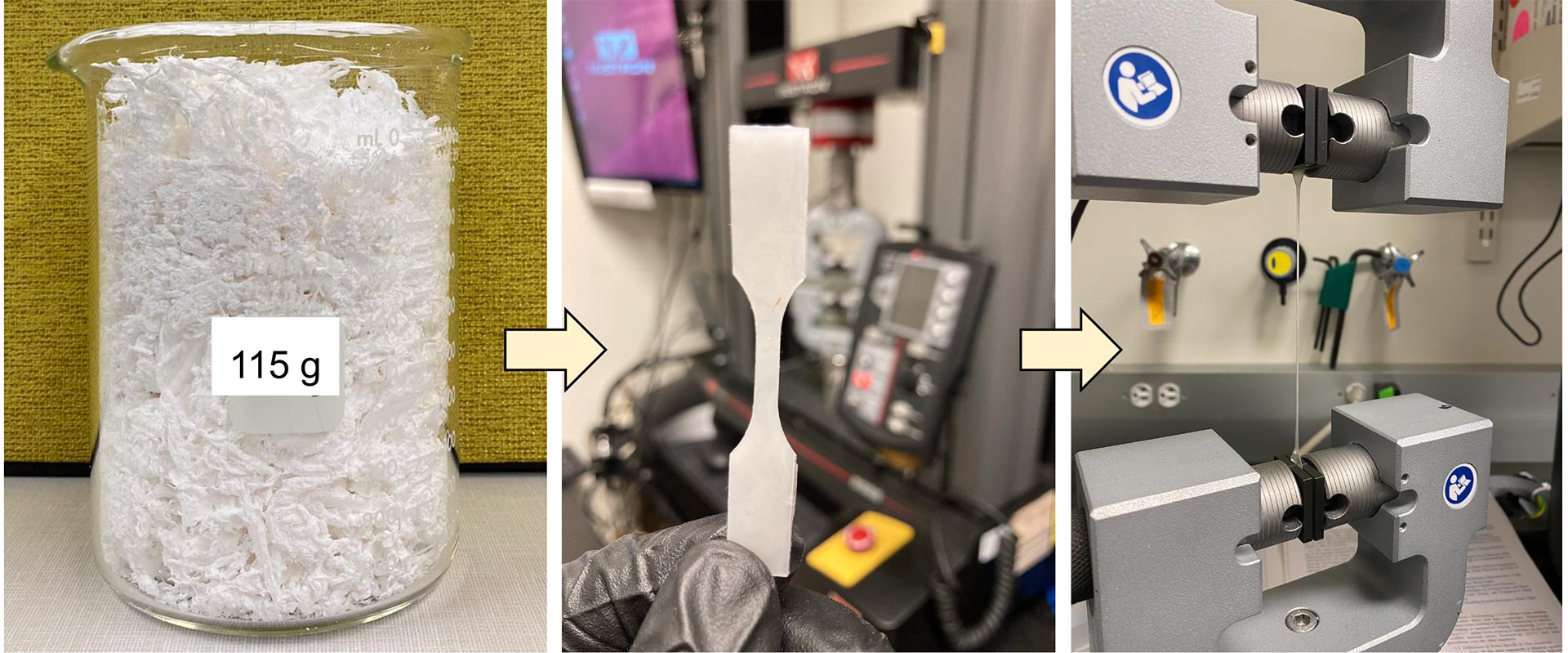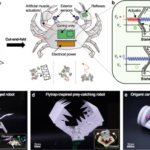2023-04-11 アメリカ合衆国・コロラド大学ボールダー校

・ コロラド大学ボールダー校が、ポリヒドロキシアルカン酸(PHA)の再設計を通じ、そのリサイカビリティーを改善。
・ PHA は再生可能原料から微生物発酵や人工合成され、海洋や土壌等の環境で生分解するポリマーで、「夢の」プラスチックと呼ばれている。しかし、従来のプラスチックのような強度に欠けるため、持続可
能で環境に優しいプラスチックとしての利用が進んでいない。溶融プロセスによるサイクルも不可能で、PHA の製造は高コストとなっている。
・ 本研究では、これらの課題に対処する PHA の合成プラットフォームを開発。真に持続可能なプラスチックとして、循環型 PHA 経済への道筋を開く。
・ 従来の PHA は熱安定性が低く、最終製品への溶融プロセスが困難となっている。そのため、熱劣化に関与する反応性の水素原子をより強靱なメチル基で置き換え、熱安定性を大幅に向上させた。
・ 新設計の PHA では、シャンプー容器等に使用される高密度ポリエチレン(HDPE)や、合成繊維等に使用されるイソタクチックポリプロピレンの最も一般的な 2 種類のプラスチックを超える機械強度も達成。
・ また、簡易な触媒と熱による化学リサイクルを通じた構成要素のモノマーへのリサイクルも可能となり、回収されたクリーンなモノマーは、リサイクル前の品質の PHA の再生産に原理上再利用可能。
・ 本研究は、米国エネルギー省(DOE)の BOTTLE コンソーシアムが支援した。
URL: https://natsci.source.colostate.edu/chemists-redesign-biological-phas-dream-biodegradable-plastics/
<NEDO海外技術情報より>
関連情報
Science 掲載論文(アブストラクトのみ:全文は有料)
Chemically circular, mechanically tough, and melt-processable polyhydroxyalkanoates
URL: https://www.science.org/doi/10.1126/science.adg4520
Methyl groups improve a plastic
Polyhydroxyalkanoates are a promising class of plastics accessible chemically or microbially from relatively sustainable feedstocks. However, their performance properties lag behind commercial petrochemically derived alternatives. Zhou et al. report that replacing reactive carbonyl-adjacent hydrogens in the monomer with methyl groups produces a polyhydroxyalkanoate that is more robust in multiple respects (see the Perspective by Guillaume). The dimethyl polymer is both crystalline and ductile, structurally sound during melt processing, and subject to efficient degradation to recover the monomer on treatment with base. —JSY
Abstract
Polyhydroxyalkanoates (PHAs) have attracted increasing interest as sustainable plastics because of their biorenewability and biodegradability in the ambient environment. However, current semicrystalline PHAs face three long-standing challenges to broad commercial implementation and application: lack of melt processability, mechanical brittleness, and unrealized recyclability, the last of which is essential for achieving a circular plastics economy. Here we report a synthetic PHA platform that addresses the origin of thermal instability by eliminating α-hydrogens in the PHA repeat units and thus precluding facile cis-elimination during thermal degradation. This simple α,α-disubstitution in PHAs enhances the thermal stability so substantially that the PHAs become melt-processable. Synergistically, this structural modification also endows the PHAs with the mechanical toughness, intrinsic crystallinity, and closed-loop chemical recyclability.





